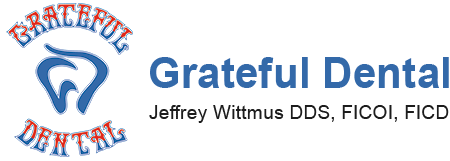Precise, Atraumatic Method for Manipulating Oral Tissues
How It’s Different
The dental laser is unique because it can be used as a surgical instrument without some of the routine, but unwanted surgical effects. The laser stops bleeding, and seals lymphatic and nerve endings, thereby by-passing inflammation and the usual discomfort that is associated with inflammation.
Key Advantages of Laser Surgery
- faster and more efficient in many cases
- essentially painless
- more sterile (laser tip sterilizes itself in operation)
- bloodless in most cases
- less invasive
- precise and conserving of healthy tissue
- safer
- less painful post-operatively
Common Questions
Do patients feel pain? The majority of patients report no pain. A few report mild discomfort.
Is anesthesia required? Not usually but this varies from patient to patient.
Why is pain reduced so greatly? The dental laser delivers pulses of energy too short to trigger a neural response.
What are dental applications of the diode laser?
COSMETICALLY: The diode laser is being used a great deal to cosmetically reshape the architecture of the gums. In many cases we are able to remove portions of tissue that are covering up healthy tooth structure, thereby lengthening the teeth, reducing the amount of gum that shows and thereby enhancing the smile. In other cases, the laser is used to create symmetry, balancing gum tissues that are visually crooked and not level with the horizontal plane.
SOFT TISSUE MANAGEMENT: The laser is also beginning to be used in dental hygiene with great results. The ability of the laser to kill bacteria in periodontal pockets and rid those pockets of sick and infected tissue has enormous potential, not only as a means of arresting the progression of periodontal disease, but as a fast and simple prophylactic.
SURGERY: As a surgical instrument, the laser makes extremely accurate, bloodless incisions. Most patients report a substantial reduction in post-operative pain. The virtual elimination of bleeding during surgery gives the dentist a clear view of the operating field and reduces the risk of infection for the patient. This enhances healing greatly, speeding up recovery for the patient.
DESENSITIZING TEETH: Another breakthrough is the capability to desensitize teeth which is simple and effective.
Is the laser safe? Absolutely, in every way, when used with good clinical judgment.
Is the laser faster than conventional treatment? Yes and no. Some procedures will go very quickly and some will seem slower. 86% of patients surveyed after treatment with the dental laser considered it to be faster than traditional instruments and preferable for the reasons given above.


